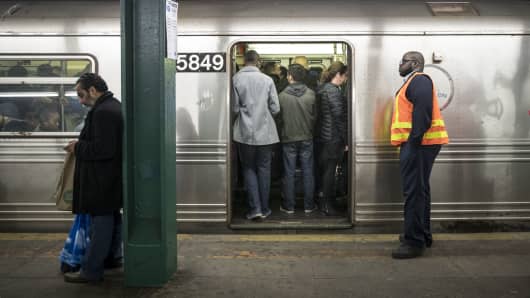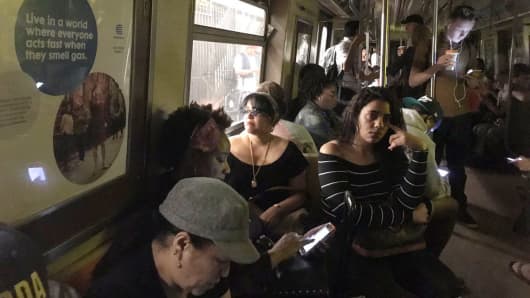In New York, subway and suburban commuter rail passengers are calling it the "summer of hell," as emergency track work and other problems disrupt the daily routines of millions of people.
In the nation's capital, riders on the Washington Metro have far nastier words for a system that has seen frequent breakdowns and a very clear deterioration in service over the past decade. Across the country, no matter how you commute, the entire ordeal is taking longer and costing you more money.
All of this is taking place at a time when President Donald Trump has promised to fork over $1 trillion in federal money for an infrastructure rebuilding program. While visionaries like Elon Musk—who promised this week to start building a Hyperloop that would get people from New York to Washington, D.C. in 29 minutes—private sector-based solutions to America's commuting woes are still mostly the stuff of dreams.
So, before we just keep on cursing, or even start spending another dollar on our transportation infrastructure, the question is: How can we fix this?
Conservatives with a strong libertarian streak (such as myself) are often tempted to call for total privatization of mass transit, roads, bridges, and airports. We know that politicians running any industry will be primarily focused on what helps them politically. Price and quality will always take a backseat in that kind of scenario, whether it's transportation, health care, or education.
Want a project built and fixed fast and at a low cost? Too bad. Your local politician needs union support on Election Day, and isn't going to push union construction outfits to do either. Want a road paved in your neighborhood? You better hope your district is important enough to someone running for office first. Want the best engineering and management experts to run your city's transportation system? Well, they're probably going to have to take a back seat to your mayor or governor's political cronies.




